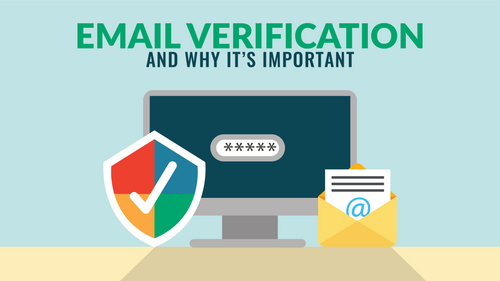As an expert in online security and data management, I've witnessed the transformative impact of email validation across various industries. Email verification isn't just a routine process—it's a powerful tool that enhances security, ensures data accuracy, and streamlines communication. In this comprehensive guide, we will explore the diverse applications of email validation and shed light on who uses it and why.
The Significance of Email Validation
Before we dive into the various use cases of email validation, it's crucial to understand why it's such a vital component of modern data management:
Security Enhancement: Email validation plays a pivotal role in verifying the authenticity of user-provided email addresses, protecting against fraud, phishing, and unauthorized access.
Data Accuracy: By ensuring that email addresses are valid and correctly formatted, organizations can maintain accurate and up-to-date contact information, reducing errors and inefficiencies.
Communication Efficiency: Valid email addresses are essential for effective communication, ensuring that messages, notifications, and alerts reach the intended recipients.
With these benefits in mind, let's explore the diverse array of industries and scenarios where email validation is indispensable.
1. E-commerce and Retail
In the world of e-commerce, email validation is a fundamental component of customer registration and order processing. Online retailers use email verification to:
- Confirm the validity of customer email addresses during registration.
- Send order confirmations and shipping notifications.
- Prevent fraudulent activities, such as fake accounts and bogus orders.
- Maintain accurate customer databases for marketing and promotions.
2. Financial Services
Banks, credit unions, and other financial institutions rely on email validation to:
- Verify customer identities during account creation and login processes.
- Send sensitive financial statements and transaction alerts securely.
- Enhance security by preventing unauthorized access to accounts.
- Ensure regulatory compliance by maintaining accurate customer records.
3. Healthcare and Pharmaceuticals
In the healthcare sector, email validation is crucial for:
- Patient registration and appointment scheduling.
- Secure communication of medical records and test results.
- Complying with data protection regulations like HIPAA.
- Reducing administrative errors and improving patient care coordination.
4. Marketing and Lead Generation
Marketers and lead generation professionals harness the power of email validation to:
- Ensure the quality of lead databases by removing invalid contacts.
- Improve email deliverability rates, open rates, and engagement.
- Reduce bounce rates and maintain a positive sender reputation.
- Optimize marketing campaigns for better ROI.
5. Government and Public Sector
Government agencies use email validation to:
- Verify the authenticity of citizen and employee email addresses.
- Communicate critical information, such as tax filings and election updates.
- Prevent cyber threats and unauthorized access to government systems.
- Ensure data accuracy in public records and databases.
Frequently Asked Questions (FAQs)
Q1: How does email validation work?
A1: Email validation typically involves a series of checks to verify the format, domain, and existence of an email address. These checks help ensure that an email address is legitimate and can receive messages.
Q2: Is email validation the same as email verification?
A2: While the terms are often used interchangeably, email validation usually focuses on checking the format and syntax of an email address, while email verification goes further by confirming its existence and deliverability.
Q3: What are the common benefits of using an email validation service?
A3: Email validation services offer benefits such as reduced bounce rates, improved deliverability, enhanced data accuracy, and better security against fraudulent activities.
Q4: Are there privacy concerns with email validation?
A4: Reputable email validation services prioritize data privacy and do not store or misuse email addresses that undergo validation. It's crucial to choose a trusted service provider.
Q5: Can email validation be automated?
A5: Yes, email validation can be automated through API integration, allowing organizations to validate email addresses in real-time or in bulk, depending on their needs.
Conclusion
Email validation is a versatile and indispensable tool with a wide range of applications across various industries. Whether you're an e-commerce giant, a financial institution, a healthcare provider, or a government agency, email validation ensures data accuracy, enhances security, and facilitates effective communication. Embrace the power of email validation to unlock its countless benefits and elevate your organization's data management and communication strategies.



